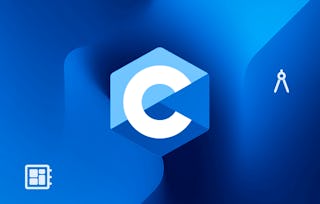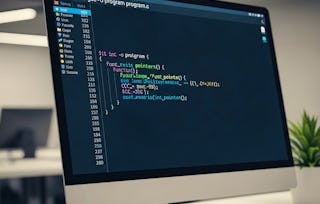Learn how to use professional tools and libraries to write and build C programs within the Linux operating system.
This seventh and final course in the C Programming with Linux Specialization will allow you to develop and use your C code within the Linux operating system. Using libraries in C is a fundamental concept when it comes to sharing code with others. In addition to compiling and linking, you will also learn how to pass arguments to an executable program. As you embark on your future career as a programmer, you will be able to continue your coding adventures with professional coding environments used by C programmers around the world. Why learn C and not another programming language? Did you know that smartphones, your car’s navigation system, robots, drones, trains, and almost all electronic devices have some C-code running under the hood? C is used in any circumstance where speed and flexibility are important, such as in embedded systems or high-performance computing. At the end of this course, you will reach the last milestone in the C Programming with Linux Specialization, unlocking the door to a career in computer engineering. Your job Outlook: - Programmers, developers, engineers, managers, and related industries within scientific computing and data science; - Embedded systems such as transportation, utility networks, and aerospace; - Robotics industry and manufacturing; - IoT (Internet of Things) used in smart homes, automation, and wearables. - IEEE, the world’s largest technical professional organization for the advancement of technology, ranks C as third of the top programming languages of 2021 in demand by employers. (Source: IEEE Spectrum) This course has received financial support from the Patrick & Lina Drahi Foundation.





















